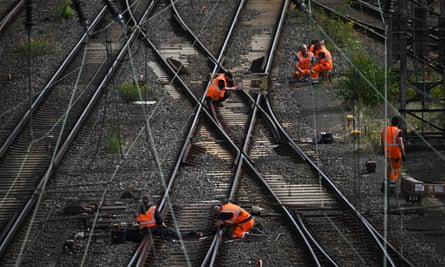Who doesn’t love a relatable internet persona? A person who feels like an old acquaintance when they pop up on your social media, someone whose sense of humor you grew to love over the years.
‘Xavier’ is one of such personas for many internet users out there. Also known as ‘Idealist Xavier’ or Xavier Komedy’, the made-up character is well-known in countries all over the world, thanks to his witty comments and relatable memes. It’s no surprise that they have gathered quite an impressive fan base with ‘Xavier’s’ Facebook page boasting over 3.5 million followers and nearly 29 thousand more amassed on Instagram. Today we have listed some instances of ‘Xavier’ taking over the internet one amusing comment at a time, so scroll down to find them below and make sure to upvote your favorites.
#1

Image credits: Xavier
#2

Image credits: Xavier
#3

Image credits: Xavier
Nowadays, billions of people—4.6, according to last year’s data—use social media, which is why it’s no surprise quite a few of them are familiar with the same internet phenomena. Whether it’s a meme gone viral, a shocking video spreading like wildfire, or fake news that’s impossible to stop once released into the online universe, people from different ends of the world might be familiar with all the same things.
However, some topics seem to be more popular than others; at least when it comes to online humor. A study published in the International Journal of Communication suggested that when it comes to jokes online, sex and marriage were the main topics they relate to; as for funny photos shared on the internet, the most popular ones related to animals, sex, and transportation.
#4

Image credits: Xavier
#5

Image credits: Xavier
Whether it’s viewing funny animal pics or giggling at jokes about marriage, social media users around the world spend roughly 150 minutes scrolling through it every day. It’s very likely that 2.5 hours a day is plenty of time to spot a comment or two from ‘Xavier’.
According to Know Your Meme, ‘Xavier’ is likely a copycat of Pakalu Papito, a mustache-equipped face that was well-known to social media users from 2015 to 2018. After Papito’s character vanished into thin air, quite a few copycat accounts seemingly filled the void it had left.
#6

Image credits: Xavier
#7

Image credits: Xavier
#8

Image credits: Xavier
Know Your Meme suggested that some of the ‘Xavier’ accounts, which present him as an Indian convenience store clerk, are run by Indian people. This idea is based on the fact that related accounts often post in Hindi and engage in trends and topics popular in India. It also suggests, though, that the ‘Xavier’ account itself likely has quite a few spin-offs as well.
In a previous interview with Bored Panda, the founder of ‘Xavier’s’ Facebook page revealed that they don’t mind copycats as long as they don’t use the name to post discriminatory or offensive content. “I want my memes to be clean and simple, and I don’t want myself to be associated with someone who objectifies people on the basis of color, gender, and sexual preferences,” they said.
#9

Image credits: Xavier
#10

Image credits: Xavier
#11

Image credits: Xavier
Because of the idea of ‘Xavier’ being a copycat of Pakalu Papito, not everyone is equally fond of the former; however, quite a few people seem to enjoy his witty comments. The founder of ‘Xavier’s’ Facebook page has previously told Bored Panda that they expected to gain 50K followers in a month, but reached 350k instead.
They also added that the goal of the meme page is simple—they want to make people’s lives better by getting them to smile and laugh.
#12

Image credits: Xavier
#13

Image credits: Xavier
#14

Image credits: Xavier
It’s not only meme pages that benefit from humor online, though; it also plays a major role in marketing, advertising, sales and service. A recent study on what it means to be happy from a customer’s perspective revealed that “91% of people prefer brands to be funny and 72% would choose a brand that uses humor over the competition”. Despite that, roughly 95% of business leaders are fearful of using humor in customer interactions.
#15

Image credits: Xavier
#16

Image credits: Xavier
#17

Image credits: Xavier
Comedy plays a significant role in the way people share information as well. The study of the effect of humor on virality concluded that, “The memes that can spread the most effectively behave like vessels for receivers to communicate their thoughts and emotions by sharing the memes in their networks.” It also suggested that quite often it’s the humorous memes through which the senders make fun of themselves that are more likely to be shared.
#18

Image credits: Xavier
#19

Image credits: Xavier
#20

Image credits: Xavier
Another study delving deeper into what kind of content people were more willing to share revealed that Americans were more likely ro relay something funny rather than something important. The answers of respondents who had shared content on social media over the previous month suggested that 65% of them shared interesting things, 49% did funny content, while 43%—something important.
Moreover, it revealed that Americans were “more likely than the average respondent across the 24 countries to typically share funny content (49% vs. 43%)”.
#21

Image credits: Xavier
#22

Image credits: Xavier
#23

Image credits: Xavier
The founder of ‘Xavier’s’ Facebook page shared some advice with Bored Panda’s readers on how to create unique social media content: “Just be real. Don’t worry about likes or followers, just have a motive of bringing a positive change in the world and bringing joy to other people’s lives.”
If you’d like to read their full interview with Bored Panda, you can find it here, and for more of ‘Xavier’s’ witty comments, make sure to check out our previous piece about him here.
#24

Image credits: Xavier
#25

Image credits: Xavier
#26

Image credits: Xavier
#27

Image credits: Xavier
#28

Image credits: Xavier
#29

Image credits: Xavier
#30

Image credits: Xavier
#31

Image credits: Xavier
#32

Image credits: Xavier
#33

Image credits: Xavier
#34

Image credits: Xavier
#35

Image credits: Xavier
#36

Image credits: Xavier
#37

Image credits: Xavier
#38

Image credits: Xavier
#39

Image credits: Xavier
#40

Image credits: Xavier
#41

Image credits: Xavier
#42

Image credits: Xavier
#43

Image credits: Xavier
#44

Image credits: Xavier
#45

Image credits: Xavier
#46

Image credits: Xavier
#47

Image credits: Xavier
#48

Image credits: Xavier
#49

Image credits: Xavier
#50

Image credits: Xavier


